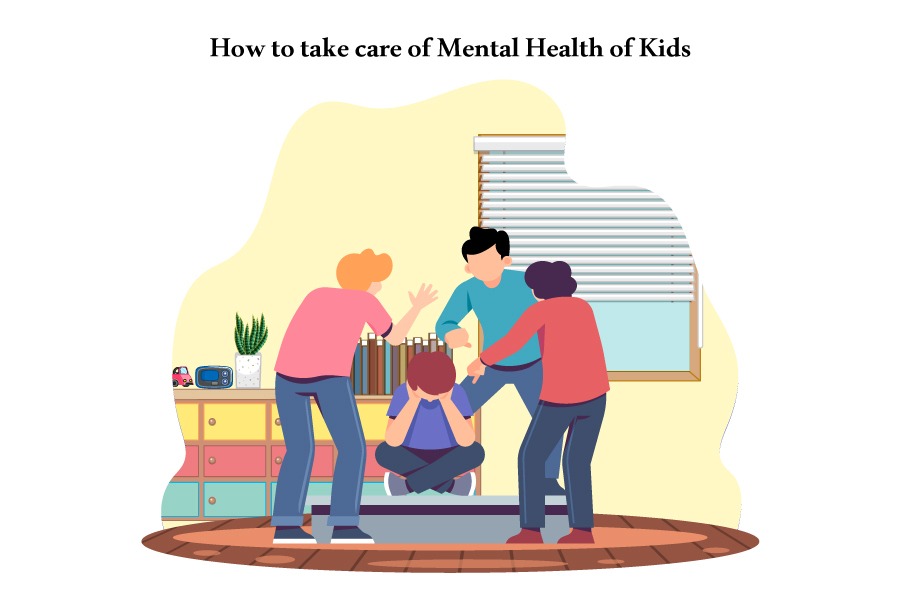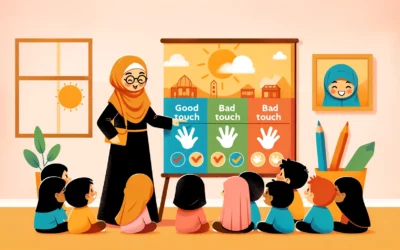Parenting in today’s fast-paced world can be a demanding task, and it becomes even more intricate for Muslim mothers as they navigate the distinctive cultural and social dynamics in North America. Prioritizing the mental well-being of your children is paramount in this journey. In this guide, we will delve into ten essential strategies that Muslim mothers can employ to foster the mental health of their kids, thus enabling them to flourish and adapt successfully in the unique North American society, where kids mental health holds a significant place.
Understanding the Challenges
The Cultural and Social Landscape
North America is a vibrant tapestry of diverse cultures, beliefs, and traditions, making it a complex and multifaceted landscape for families. For Muslim families, the challenge often lies in striking a delicate balance between preserving their faith and traditions while their children are raised in a secular and culturally diverse environment. This interplay between faith, tradition, and the broader societal context can significantly influence kids mental health and well-being. This is one of biggest Muslim-American Youth Challenges
The Stigma Surrounding Mental Health
Mental health issues can still be surrounded by a stigma in certain communities. It is essential to openly address these concerns and promote a culture of understanding, acceptance, and the importance of seeking help when it is needed. This approach plays a vital role in nurturing kids’ mental health and ensuring the best methods of Stress Management in Muslim Kids
Building a Strong Foundation
Cultivate a Strong Family Bond
Creating a nurturing and supportive family environment is crucial for a child’s mental well-being. It involves spending quality time together, engaging in meaningful conversations, and making lasting memories as a family. These experiences not only strengthen the parent-child bond but also contribute significantly to kids’ mental health by providing them with a sense of security and love.
Emphasize Islamic Values
Teaching your children the significance of Islamic values, such as compassion, empathy, and resilience, is a valuable lesson is the basic part of Islamic Parenting USA. These values not only guide them in leading a righteous life but also lay a solid foundation for their mental health. Encouraging these principles helps children develop emotional intelligence, build healthy relationships, and cope effectively with life’s challenges, thereby promoting their well-being and kids mental health.
Effective Communication
Create an Open Dialogue
Fostering open communication with your children is essential for their mental well-being. Encourage them to express their thoughts and feelings freely. Be a good listener and validate their emotions, as this not only builds trust but also creates a safe space for them to confide in you. This open channel of communication is a crucial element in supporting kids mental health and helping them navigate the ups and downs of life effectively.
Discuss Cultural Identity
In a multicultural society, assisting your children in navigating their cultural identity is key. Engage in conversations about their heritage, faith, and the importance of embracing diversity while staying true to their beliefs. By addressing these topics, you empower your kids to find a harmonious balance between their cultural roots and the world around them to fit the American Muslim Family Dynamics . This not only enriches their sense of self but also contributes to their mental well-being, as they learn to appreciate and confidently express their unique identity within the broader societal context.
Nurture Self-Esteem
Encourage Self-Acceptance
Instilling self-love and self-acceptance in your children is a fundamental lesson. Emphasize that their worth should not be defined by external factors like appearance or popularity. By teaching them to embrace and appreciate themselves as they are, you nurture their self-esteem and mental well-being. This valuable lesson helps children build a strong foundation of self-confidence, enabling them to navigate life’s challenges with resilience and a positive self-image.
Celebrate Achievements
Recognizing and celebrating your children’s achievements, no matter how small is a powerful way to bolster their self-esteem and confidence. Positive reinforcement reinforces their sense of self-worth and encourages them to strive for further success. This approach not only supports their mental well-being but also inspires them to pursue their goals with determination and enthusiasm and hence leaves a positive impact on kids mental health.
Managing Stress and Anxiety
Teach Coping Mechanisms
Equipping your children with healthy coping strategies to manage stress and anxiety is crucial for their mental well-being. Teach them techniques like breathing exercises, meditation, and seeking solace in prayer, as these practices can provide valuable tools for handling life’s challenges. By imparting these skills, you empower your kids to effectively navigate stress and anxiety, promoting emotional resilience and well-being.
Identify Stressors
Assist your children in recognizing the stressors in their lives, and collaboratively explore solutions. Taking a proactive approach empowers them to handle challenges effectively. By working together, you not only foster problem-solving skills but also build their confidence in their ability to manage stress, ultimately contributing to their mental well-being and overall resilience.
Seeking Professional Help
Eliminate Stigma
Educating your children about the importance of seeking professional help when it’s necessary is vital. It’s essential to normalize therapy as a means of personal growth and healing. By doing so, you remove the stigma around seeking help for mental health concerns and encourage your kids to prioritize their well-being. This open and accepting approach supports kids mental health by ensuring they understand that reaching out for professional assistance is a positive and courageous step.
Access Community Resources
Connecting with local Muslim communities and organizations that provide mental health support services can be a valuable resource. These organizations offer guidance and assistance when needed, creating a supportive network for your family. Access to culturally sensitive and faith-based mental health resources can greatly contribute to kids mental health and ensure that they receive the specific support they may require while navigating the challenges of their cultural and religious identity in North America.
Promote a Balanced Lifestyle
Encourage Physical Activity
Regular exercise not only benefits physical health but also plays a crucial role in promoting mental well-being. Encourage your children to participate in physical activities they enjoy, as this can help reduce stress, boost their mood, and enhance overall mental health. Whether it’s sports, dance, or simply playing outside, these activities contribute to their emotional and psychological well-being, fostering a healthy balance in their lives.
Monitor Screen Time
Maintaining a healthy balance between online and offline activities is essential for your children’s mental well-being. It’s important to limit screen time to prevent excessive exposure to digital devices, as this can contribute to stress and anxiety. Encourage them to engage in offline pursuits, such as hobbies, outdoor play, and spending quality time with family and friends. This balance not only supports kids mental health but also fosters a well-rounded and fulfilling lifestyle.
Be a Role Model
Lead by Example
Your behavior and attitude serve as powerful examples for your children in handling challenges and stress. Demonstrating resilience and grace in the face of adversity can significantly influence their coping mechanisms. By showing them how to navigate difficulties with a positive outlook and effective problem-solving, you equip them with valuable life skills that can enhance their mental well-being and help them thrive in the face of challenges.
Self-Care
As a mother, it’s crucial to prioritize self-care for your own mental health. When you take the time to care for yourself, you set a positive example for your children. Demonstrating the importance of self-care not only helps you maintain your well-being but also teaches your kids the value of self-compassion and balance in their own lives. This approach contributes to a harmonious family environment and supports your children’s mental health by showing them that taking care of oneself is a healthy and necessary practice.
Conclusion
In an ever-changing world, Muslim mothers play a pivotal role in nurturing their kids mental health. By acknowledging and addressing the unique challenges of North American society, focusing on building a strong foundation, fostering effective communication, nurturing self-esteem, and being open to seeking professional help when needed, you can empower your children to thrive mentally and emotionally.
It’s essential to remember that this journey is ongoing, and with love, support, and dedication, you can create the best possible environment for your kids to flourish. Starting to implement these strategies today, we can collectively contribute to a brighter and mentally healthier future for the Muslim youth of North America.
FAQs on Kids Mental Health
- How can I help my child combat Islamophobia?
- Educate them about their faith.
- Encourage resilience and self-confidence.
- What is emotional intelligence, and why is it important?
- Emotional intelligence is the ability to recognize and manage one’s emotions.
- It’s important as it helps children handle stress and peer pressure effectively.
- Why is open communication vital in parenting?
- Open communication fosters trust and allows children to express their thoughts and emotions freely.
- What should I do if my child is facing emotional challenges?
- Seek professional help from a mental health expert.
- Provide emotional support and understanding.
- How can I balance my child’s lifestyle effectively?
- Emphasize physical activity, a healthy diet, and sufficient sleep.
- Encourage moderation in screen time and technology use.

















